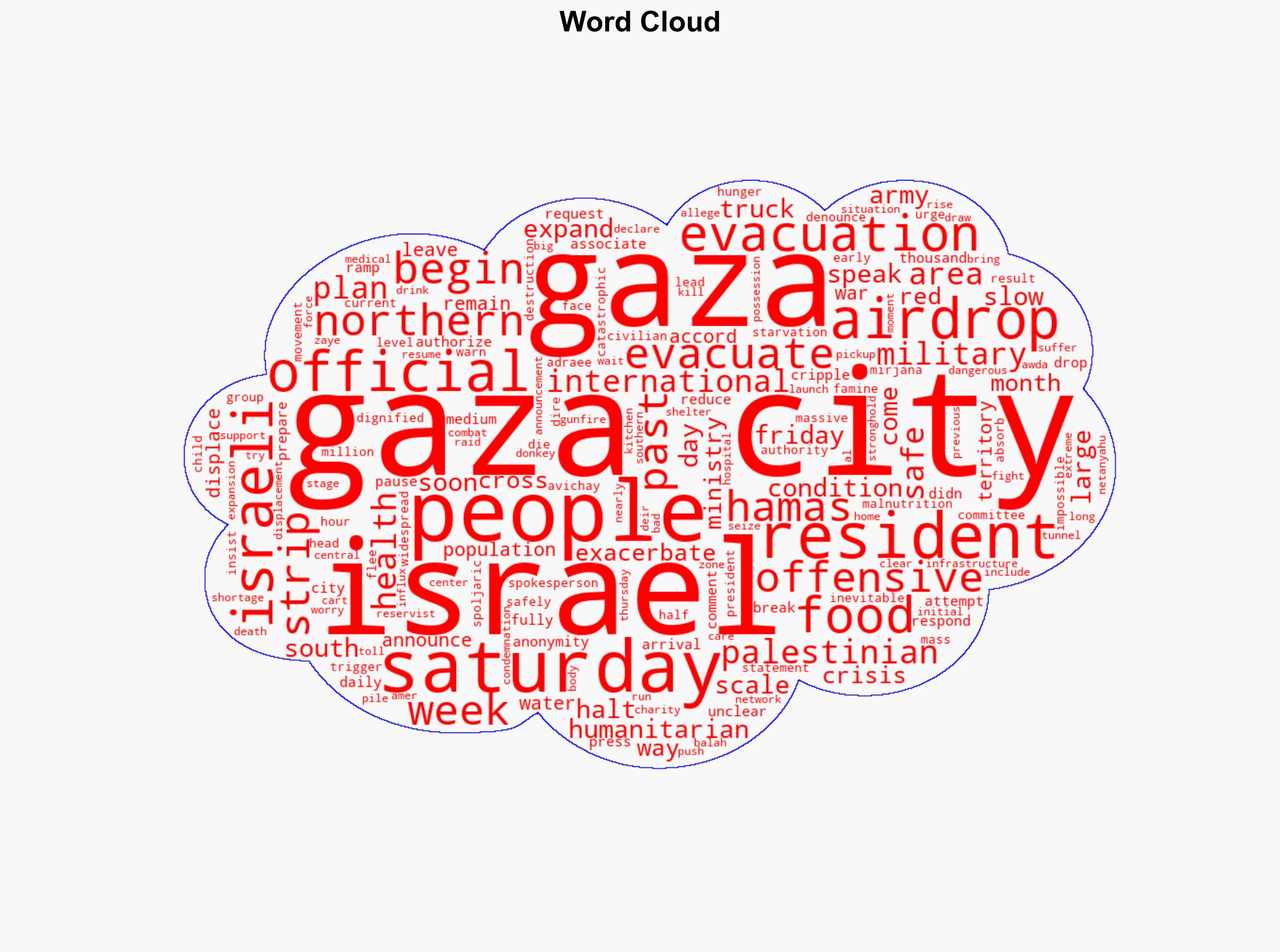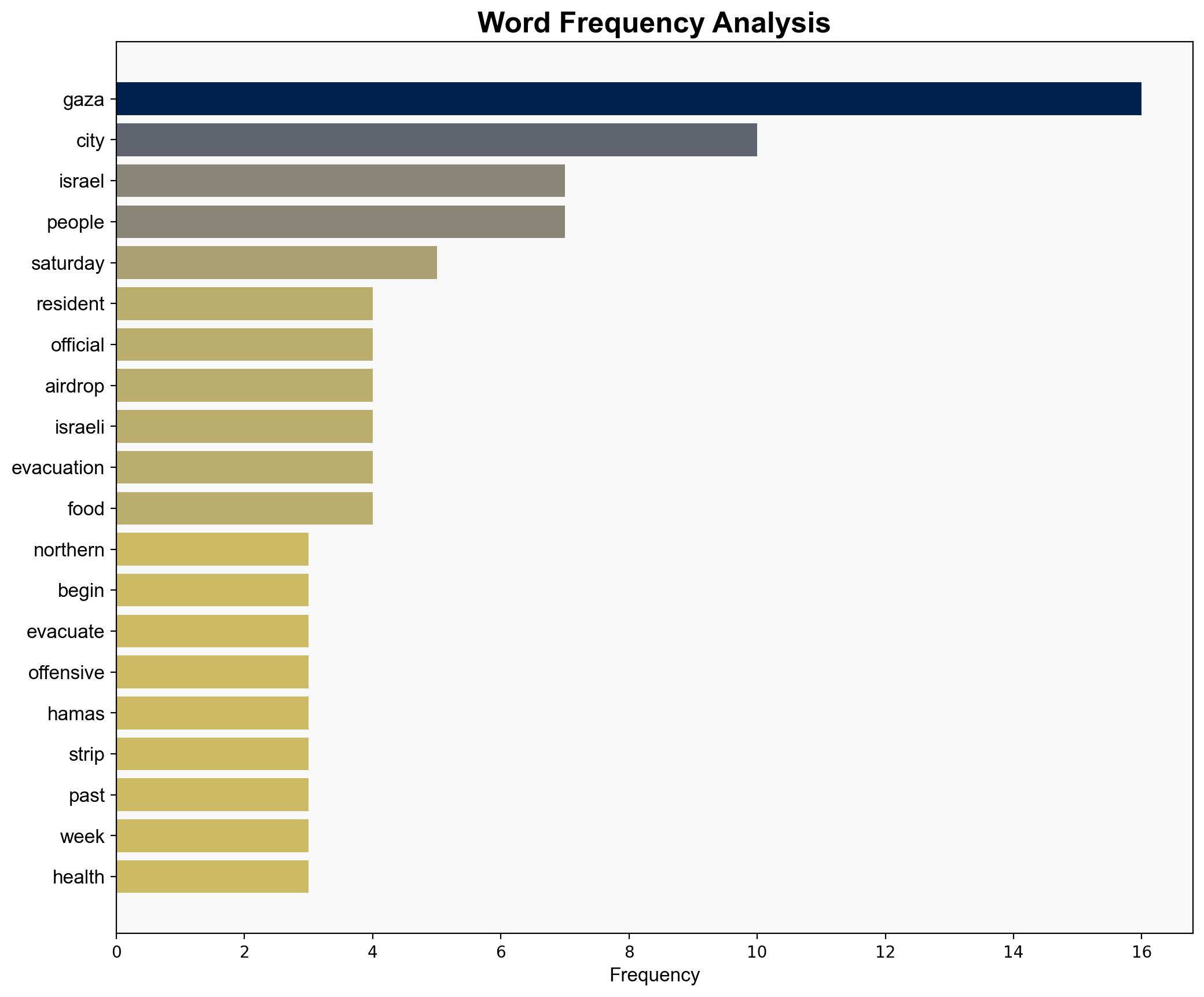Israel will soon slow or halt aid into parts of northern Gaza – CBS News
Published on: 2025-08-30
Intelligence Report: Israel will soon slow or halt aid into parts of northern Gaza – CBS News
1. BLUF (Bottom Line Up Front)
Israel’s decision to slow or halt aid into northern Gaza is likely a strategic move to weaken Hamas by disrupting logistical support and forcing civilian evacuations. The most supported hypothesis is that this action is part of a broader military strategy to gain control over Gaza City. Confidence level: Moderate. Recommended action: Monitor humanitarian impacts and prepare for potential regional escalations.
2. Competing Hypotheses
1. **Military Strategy Hypothesis**: Israel is slowing or halting aid as part of a calculated military strategy to pressure Hamas by disrupting their supply lines and forcing civilian evacuations, thereby weakening Hamas’s operational capabilities in Gaza City.
2. **Humanitarian Pressure Hypothesis**: Israel is responding to international pressure to minimize civilian casualties by slowing aid to create a controlled evacuation, thus reducing the risk of collateral damage during military operations.
Using ACH 2.0, the Military Strategy Hypothesis is better supported due to the alignment of actions with Israel’s stated military objectives and the lack of substantial evidence of international pressure influencing immediate operational decisions.
3. Key Assumptions and Red Flags
– **Assumptions**: The assumption that halting aid will effectively pressure Hamas without causing a humanitarian crisis. The belief that international condemnation will not significantly alter Israel’s military strategy.
– **Red Flags**: Lack of clear communication from Israeli officials about the humanitarian impact. Potential underestimation of international backlash and its effects on Israel’s diplomatic standing.
4. Implications and Strategic Risks
– **Humanitarian Crisis**: Slowing aid could exacerbate the already dire humanitarian situation, leading to increased international condemnation and potential intervention.
– **Regional Escalation**: This action might provoke retaliatory measures from Hamas or other regional actors, increasing the risk of broader conflict.
– **Geopolitical Tensions**: Strained relations with allies and international bodies could impact Israel’s diplomatic leverage and economic partnerships.
5. Recommendations and Outlook
- Enhance diplomatic engagement with key international stakeholders to mitigate backlash and maintain strategic alliances.
- Prepare for potential escalation scenarios, including increased military readiness and intelligence monitoring of regional actors.
- Scenario Projections:
- Best Case: Controlled evacuation minimizes civilian casualties, and military objectives are achieved with limited international fallout.
- Worst Case: Humanitarian crisis leads to international intervention and regional conflict escalation.
- Most Likely: Continued military operations with moderate international criticism and increased humanitarian aid demands.
6. Key Individuals and Entities
– Avichay Adraee: Israeli army spokesperson urging evacuation.
– Mirjana Spoljaric: President of the International Committee of the Red Cross, denouncing Israel’s evacuation plans.
7. Thematic Tags
national security threats, humanitarian crisis, military strategy, regional focus




